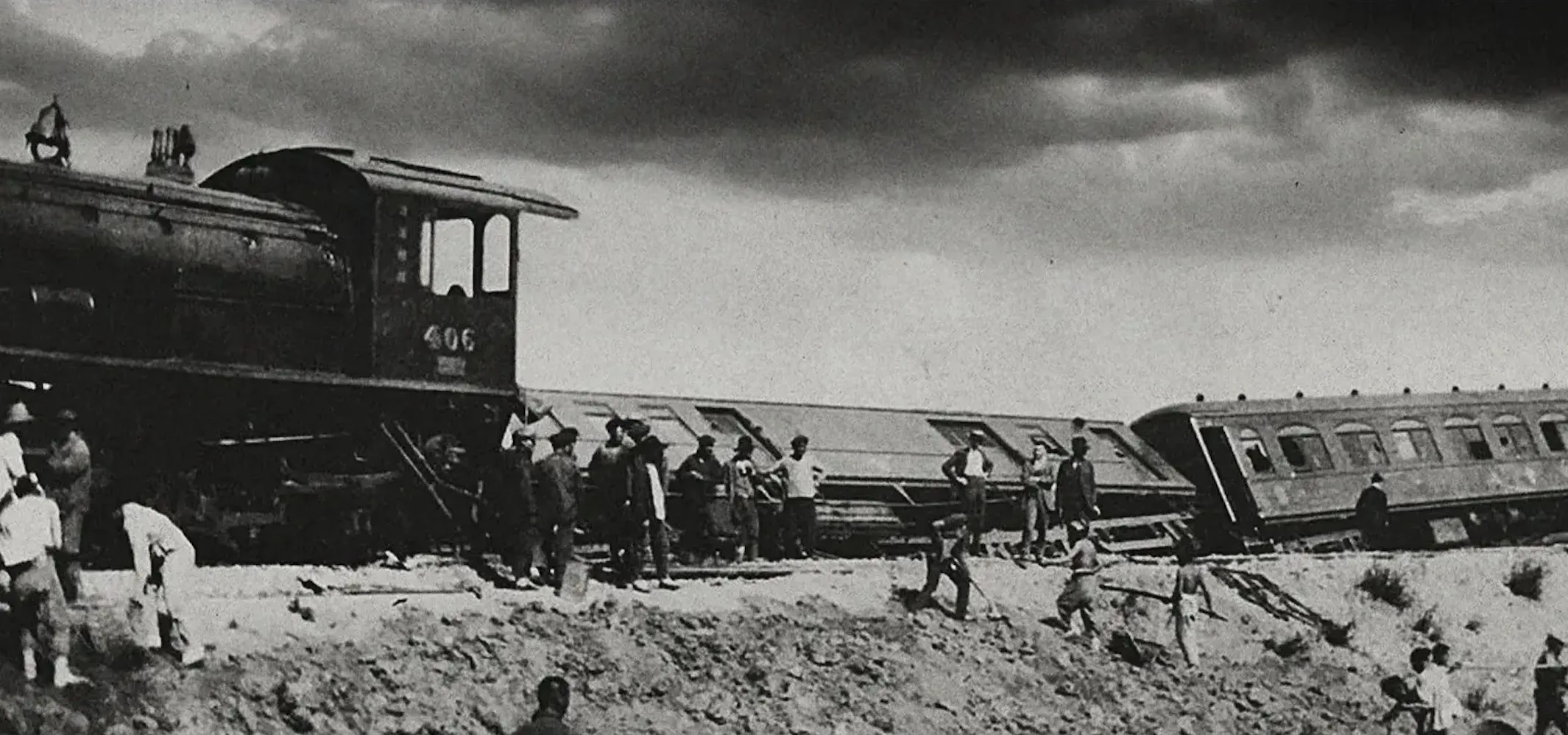James Zimmerman’s new book examines the sensational stories behind the 1923 robbery of the Peking Express
A wealthy heiress, a charismatic bandit revolutionary, and a military father trying to save his family might sound like the cast of your next Netflix binge. However, The Peking Express: The Bandits Who Stole a Train, Stunned the West, and Broke the Republic of China is not the product of a screenwriter’s imagination, unlike the classic 1932 film loosely based on the incident, Shanghai Express.
Published by PublicAffairs, James Zimmerman’s nonfiction book recounts the true story of the 1923 “Lincheng Train Incident,” in which warlord Sun Meiyao (孙美瑶) and his henchmen stopped the supposedly unstoppable Peking Express, Asia’s first all-steel train, and took over 300 hostages.
Zimmerman follows the experiences of various foreign passengers, including American oil heiress Lucy Aldrich, journalist John Benjamin Powell, vacationing US Army officers Roland Pinger and Robert Allen, and a full cast of shady figures, wealthy expatriates, and the obligatory character with a secret or two.
Boarding the Peking Express, a sleek modern train with steel-reinforced carriages, guards, and guns, the passengers felt safe even while traveling overnight from Shanghai to Peking through parts of China only nominally under government control and teeming with bandits, rebels, and warlords of dubious motivations.
Unbeknownst to those onboard, former soldier Sun Meiyao had an audacious plan not just to rob the train but to capture its rich and famous passengers and use them as bargaining chips to force the relatively weak Chinese government to grant Sun control over his southern Shandong homeland.
Using sources only recently made available by the victims’ families and descendants, Zimmerman weaves a narrative that is both excellent history and an enthralling adventure story. The best nonfiction is often about fascinating events that are not well-known enough to rob the tale of suspense—a reader of a book about the Titanic might not keep turning the page worried about how it will end. But the fact that the story here is a relatively obscure one, today at least, surely adds to its appeal.
Similar to writer Paul French’s reconstruction of the events surrounding the 1937 murder of Pamela Werner in Midnight in Peking, Zimmerman uses a sensational event as a point of departure to evoke and reconstruct a particular time and place. Sun’s men sweep onboard the train in the early morning of May 6, 1923, brandishing guns and swords, forcing the passengers off the train. Readers of Peking Express will want to know who survives, who does not, and what happens to both the hostages and their captors, many of whom, including Sun, have unexpected back stories and motivations.
The train Peking Express itself was symbolic of China’s burgeoning and troubled modernity, with accommodations and comforts far beyond what most people in China could imagine for their homes, let alone in a passenger carriage.
The train was built as a rolling fortress, shielding those onboard from the reality of 1920s China. The resentment and hostility of the train robbers, primarily poor and dispossessed young men, is palpable. One of the finest parts of Zimmerman’s story is how the hostages, despite their desperate situation, develop an awareness and empathy after witnessing firsthand the grinding poverty and deprivation in rural Shandong at the time.
A fascinating subplot tells how the hostages and their captors bond with each other despite the harrowing circumstance. Both Sun Meiyao’s forces and their prisoners endured marches over steep terrain, trying to keep one step ahead of the provincial army sent to manage the situation by any means necessary, even if that meant recovering bodies rather than rescuing passengers.
News reports of the Lincheng Incident, then referred to as the Lincheng Outrage, spread rapidly throughout China and the world. Shanghai-based Chinese newspaper Shen Bao, for example, quickly followed up the incident with multiple reports as well as an opinion piece pointing fingers at the government’s ineptitude. Meanwhile, international reactions to the daring robbery became a microcosm of the unequal relationship that China had with foreign powers who stubbornly clung to their privileged positions gained from nearly a century of war and treaties.
“An attack on an express train by marauding bandits could threaten China’s national sovereignty and bring the unstable Republican government to its knees,” argues Zimmerman, as the management of the incident and the hostage situation would become one of the factors that cost President Li Yuanhong his job in 1923. “It would not only strike a blow to China’s economically critical rail system but also put the country in the crosshairs of the foreign powers that increasingly took the view that China couldn’t govern itself.”
The foreign perception that the Chinese government could not be relied upon to rein in the hubris and depredations of warlords and bandits was part of an argument for continuing the treaty system, especially the legal practice of extraterritoriality. Under this system, which many Chinese resented, foreigners in the country often operated outside Chinese jurisdiction. It’s worth noting that, despite their complaints of unchecked chaos and militarism, those same foreign powers and their agents were covertly, and sometimes not so covertly, supporting and arming different warlord factions around China.
Zimmerman readily acknowledges and discusses these contradictions and conflicts of interest, but the narrative does rely heavily on Western sources. The fates of the numerous Chinese victims and hostages are less well documented, and, too often, they feel like extras or scenery in a foreign drama. We learn more about the captors, including one man who served in Europe as part of the Chinese Labor Corps during World War I before joining Sun’s crusade, but others appear as tormentors identified only by crude nicknames such as “Straw Hat” and “Fat Lip,” as they were in the accounts of the Westerners held captive. This can be a challenge in nonfiction hostage dramas: hostages are much more interested in their survival than getting to know their captors’ deepest fears, hopes, and dreams.
Nevertheless, Zimmerman presents a balanced and engaging narrative that sheds light on the trauma and challenges facing China at a pivotal moment in history. As the fates of the hostages and their captors remain suspenseful throughout the book, readers will enjoy a work of history that doubles as a page-turning story of survival.













